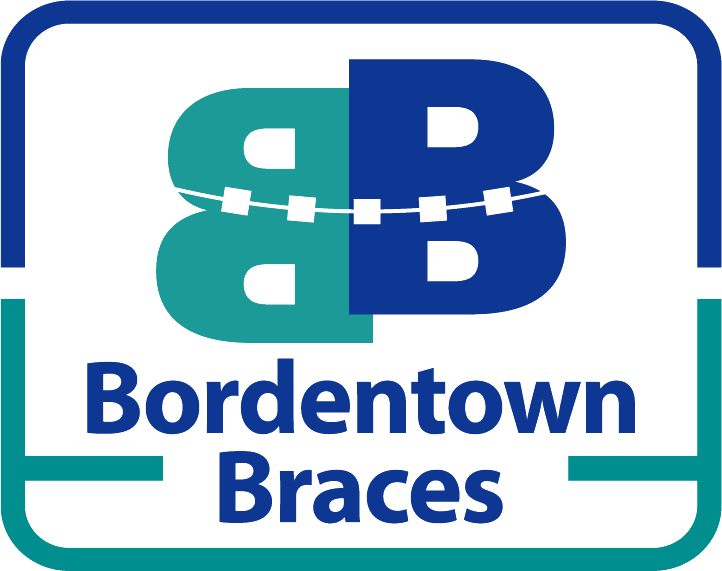
Top 6 Long Term Health Benefits of Braces
People often choose to wear braces because of the physical benefits. Straighter teeth are considered more attractive, but there are also many long term health benefits of braces that mean having a happier, healthier smile long after treatment is done.
1. Gum Disease Prevention
One of the most significant long term health benefits of wearing braces is the prevention of gum disease. Gum disease is an infection of the soft tissues which surround the teeth. Over half of the population has some variation of this infection. It can be categorized as gingivitis or more severe periodontal disease.
When someone has crooked or misaligned teeth, it is easy for plaque and food particles to become trapped between the teeth. This allows bacteria to multiply over time, eventually infecting the gums. Wearing braces evens the teeth so they are easier to clean with a regular toothbrush and floss. This means fewer particles become trapped, and bacteria can be removed before it causes gum disease.
2. Tooth Decay Prevention
Similar to the scenario with gum disease, wearing braces can also reduce your chances of developing tooth decay. When the teeth overlap or are more pronounced, they are prone to uneven wear and tear. They also will not take an equal part in the biting and chewing process, and can be difficult to clean.
When someone is unable to remove plaque and food particles from in between the teeth, bacteria is allowed to fester and multiply. The bacteria eats away at the surface enamel of the teeth, causing decay.
Wearing braces can help prevent tooth decay by aligning the teeth so they are easy to clean and maintain.
3. Bone Erosion Prevention
Just as the gums and teeth can be affected, so can the bones which hold the teeth in place. Every tooth has a long root which is embedded in the jawbone. If bacteria manages to penetrate the gums or tooth and work its way to the bone, the bone can start to erode and wear down.
Misaligned teeth are one of the most common causes of jawbone erosion because the misalignment often places extra force on the teeth and gums. This creates spaces where bacteria can hide and percolate, eventually reaching the bones.
Braces can help prevent erosion by ensuring every part of the jawbone is properly exercised and that there are no pockets in the mouth for plaque and bacteria to hide.
4. Reduced Risk of Damaged Teeth
Did you know having misaligned or crooked teeth can increase your risk of damaging them?
The mouth is supposed to have the teeth evenly spaced and not overlapped so the force from biting and chewing is evenly distributed across the enamel and deep in the jawbone. When someone suffers from a misalignment or overlapping teeth, pressure is not evenly distributed. The result is too much force can be applied to a single tooth, increasing the likelihood of it cracking or breaking.
A similar problem occurs with protruding teeth. They are easier to break because they often do not have a stable base. This means someone with an overbite who is hit in the mouth is more likely to have broken teeth as a result.
Braces help strengthen the teeth by aligning them. This means force is evenly distributed, and the changes of having permanently damaged teeth from physical trauma are reduced significantly.
5. Enhanced Digestive Health
Having a misalignment has a serious effect on how well someone is able to eat, and also how they digest their food. Difficulty eating is understandable, as having an overbite, underbite, or crossbite affects how well a patient is able to bite and chew. A common problem among people who suffer from alignment issues is not being able to chew their food properly. This is because entire sections of the mouth, such as the front, are not able to break down food.
The result is large chunks of food making their way to the stomach where they cannot be digested correctly. This often results in intestinal distress, irritable bowels, and difficulty feeling sated after eating.
When someone wears braces, the smile becomes aligned and all parts of the teeth are able to close and chew correctly. This reduces how often improperly chewed food enters the stomach, reducing the frequency of intestinal distress and discomfort.
6. Improved Comfort
Finally, wearing braces can improve a patient’s overall comfort and wellbeing. When someone has misaligned teeth, they are more likely to bite their tongue, gums, and the insides of their cheeks because the jaws do not sit together correctly. The teeth are also far more likely to cause general pain because they pull on the gum tissue and cause increased strain in the jaws and mouth.
When someone wears braces, the teeth are able to move into a more natural and comfortable position. This not only reduces the likelihood of accidentally biting the interior of the mouth, but it also reduces strain on the jaws and the temporomandibular joints (TMJ).
The result is less overall oral pain and improved comfort when eating, speaking, smiling, and just existing.
7. Improved Mental Health
Outside of the physical benefits, braces can also improve mental health by improving the wearer’s confidence and self-esteem. Many people struggle with uneven or crooked teeth, and it is common for these individuals to be uncomfortable showing their smiles. Wearing braces can correct these physical flaws, helping someone be more comfortable with themselves and improve their confidence.
In fact, studies have shown those who receive braces are more likely to smile and show their teeth in public.
Conclusion
Maintaining long term oral and dental health requires addressing major problems as soon as possible. This includes orthodontic treatment, which has a major effect on physical and mental health.
If you are considering braces because of their numerous benefits, contact Bordentown Braces. Our offices one of the top orthodontists in Roebling, NJ, Dr. Newman. We can help you experience all of the long term health benefits of braces by prescribing quality treatment that addresses both oral and mental health.
